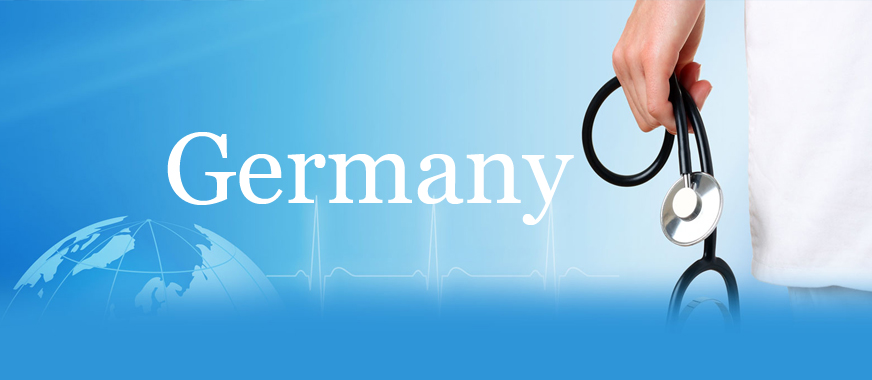
Germany the Federal Republic of Germany is a federal parliamentary republic in western-central Europe. The country consists of 16 states and its capital and largest city is Berlin. Germany covers an area of 357,021 square kilometers (137,847 sq mi) and has a largely temperate seasonal climate. With 80.3 million inhabitants, it is the most populous member state in the European Union. Germany is the major economic and political power of the European continent and a historic leader in many theoretical and technical fields.
Population:82,020,578 (estimated 2012).
Climate:Most of Germany has a temperate seasonal climate in which humid westerly winds predominate. Germany gets an average of 789 mm (31 in) precipitation per year. Rainfall occurs year-round, with no obligatory dry season. Winters are mild and summers tend to be warm, temperatures can exceed 30 °C (86 °F).
Religions:Christianity is the largest religion in Germany, with around 51.5 million adherents. The second largest religion is Islam with an estimated 3.8 to 4.3 million adherents (4.6% to 5.2%), followed by Buddhism with 250,000 and Judaism with around 200,000 adherents (0.3%); Hinduism has some 90,000 adherents (0.1%). All other religious communities in Germany have fewer than 50,000 adherents.
Languages: German is the official and predominant spoken language in Germany. It is one of 23 official languages in the European Union, and one of the three working languages of the European Commission. Recognised native minority languages in Germany are Danish, Low German, Sorbian, Romany, and Frisian; they are officially protected by the European Charter for Regional or Minority Languages.
Currency:
Euro
Communication:
German is easily keeping up with the rapid changes and new developments within media and communication. In this country you’ll always be up-to-date and well-connected to the rest of the world: German media is keeping you informed while TV and radio shows prove to offer the necessary entertainment.
Festivals:
Many festivals and holidays in Germany are of Christian origin. The most important ones are Christmas and Easter. Turks, Greeks, Italians, Poles, Russians, Croatians and Spaniards, Arabs, Brits, Americans, and Australians, the French, Indians, Koreans and many more all have their special festivals and holidays and celebrate these together with Germans and other nationals.
The country:
From its roots, culture in German states has been shaped by major intellectual and popular currents in Europe, both religious and secular. Historically Germany has been called Das Land der Dichter und Denker ("the land of poets and thinkers"), because of the major role its famous writers and philosophers have played in the development of Western thought and culture.
The federated states are in charge of the cultural institutions. There are 240 subsidized theatres, hundreds of symphonic orchestras, thousands of museums and over 25,000 libraries spread in Germany. These cultural opportunities are enjoyed by many: there are over 91 million German museum visits every year; annually, 20 million go to theatres and operas; 3.6 million per year listen to the symphonic orchestras
Literacy rate:
Over 99% of Germans age 15 and above are estimated to be able to read and write. Responsibility for educational supervision in Germany is primarily organized within the individual federal states.
Moving to Germany
Germany is a modern, cosmopolitan, and innovative society, which may make the transition to Germany easier for many expats. When you move to Germany, you will also benefit from the regional diversity, which is an important part of German identity.
Due to its Western heritage and the fact that Germany is a modernized country, most expat newcomers in Germany don’t have all that many problems adapting to the German way of life. Still, you might want to consider the following tips on how to prepare for your relocation to Germany.
Accommodation:
The apartment-sharing is a cheap alternative to the own apartment. Universities also provide residential homes for their students in which one can live cheaply. In most cases the kitchen is shared with other students and one has a small single room. Applying early for a place at the residential home raises the chance to get one of the strongly demanded places.
Health & Safety:
EU students are entitled to use Germany’s healthcare system in the same way as nationals so long as they have a European Health Insurance Card.
Germany is a relatively safe destination and violent crime is rare. In 2010, the number of annual crGlobal Career Academy in Germany fell to its lowest level in 20 years.
Transportation:
With its central position in Europe, Germany is a transport hub. This is reflected in its dense and modern transport networks. The motorway (Autobahn) network ranks as the third-largest worldwide in length and is known for its lack of a general speed limit. Germany has established a polycentric network of high-speed trains. The Inter City Express or ICE network of the Deutsche Bahn serves major German cities as well as destinations in neighboring countries with speeds up to 300 kph (186 mph). The largest German airports are Frankfurt Airport and Munich Airport, both hubs of Lufthansa, while Air Berlin has hubs at Berlin Tegel and Düsseldorf. Other major airports include Berlin Schönefeld, Hamburg, Cologne/Bonn and Leipzig/Halle. Both airports in Berlin will be consolidated at a site adjacent to Berlin Schönefeld, which will become Berlin Brandenburg Airport.
Germany's achievements in the sciences have been significant, and research and development efforts form an integral part of the economy. The Nobel Prize has been awarded to 103 German laureates. For most of the 20th century, German laureates had more awards than those of any other nation, especially in the sciences (physics, chemistry, and physiology or medicine).